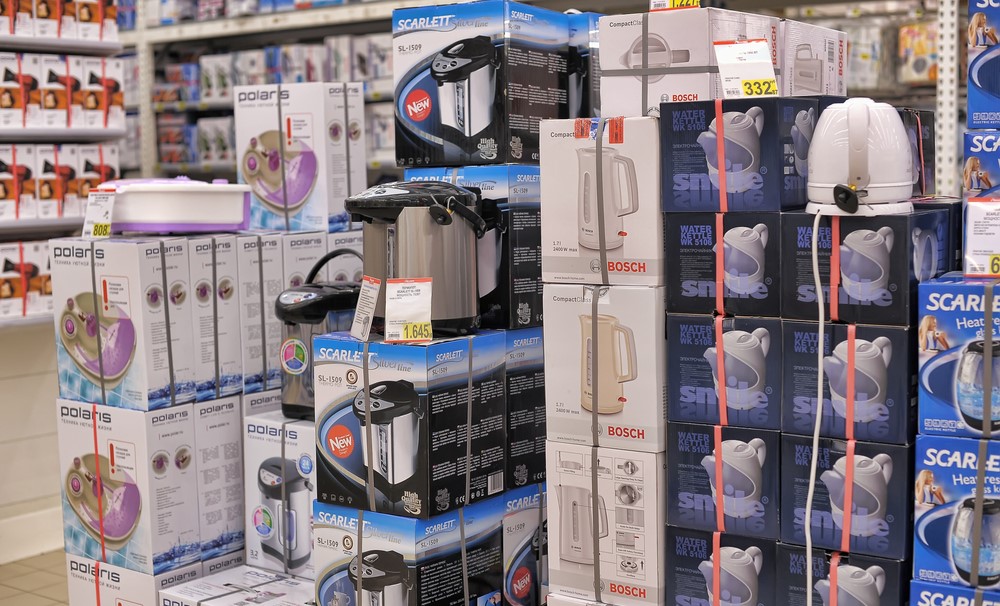
Consumer appliances, no matter how small or large, require specific standards to be met for ensuring they remain safe to use and long-lasting. These appliances are electrical and they pose a risk of fire or harm to users if malfunction occurs. There are many consumer appliance safety standards that are in place to avoid such occurrences, with major manufacturers requiring solutions for their products. As we reach winter months, further consideration should be given to heating appliances such as plug-in radiators and convection heaters.
Insulation is a critical component in electrical appliances, both for functionality as well as safety. Electrical insulators have high resistance to flowing electric currents, where the atoms of the insulating material have tightly bound electrons that cannot readily move. Examples of electrical insulators range from microelectronic components such as transistors and microchips to larger high voltage applications containing transformers and capacitors. Insulation also helps to mitigate high temperatures that can be generated by electrical consumer appliances.
Risks associated with consumer appliances
There are many consumer appliances found in most UK households that can be dangerous. High voltages and high temperatures are apparent for most of these appliances, and therefore require insulation solutions that can protect them and the owners. Certain appliances are worse than others in terms of energy consumption, requiring significant amounts of electricity and operating under high voltages.
Consumer electronics, lighting, heating and cooking appliances all generate high temperatures and are responsible for steep electricity usage. While there are safety standards being set for manufacturers to abide by, there is still potential for unforeseen malfunctions and damage. Specific appliances that require excellent safety measures and insulating solutions include convection ovens, heaters, televisions, kettles, toasters and hair dryers.
Pressures of winter
The number of electrical heaters in UK homes is growing and they’re commonly used during the winter months. They can be used by households that have domestic energy storage systems, where electricity stored can be converted into heat via heating appliances. Heating is the second leading cause of home fires and home fire injuries, and heating appliances such as plug-in radiators are a major driver of these statistics.
If they have been left on by accident, or had internal malfunctions due to improper care, the risk of fire significantly heightens. It is therefore crucial for these appliances to contain the necessary safety measures, namely insulation. Suitable insulating solutions within appliances can drastically reduce the risk of fires due to the higher temperatures being kept under control.
Elmelin’s solutions
At Elmelin, we work closely with consumer appliance manufacturers to develop and create insulation solutions that mitigate electrical and high-temperature associated risks. All of our solutions meet strict safety standards and regulations, while ensuring performance and design aren’t compromised. Our decades of experience and expertise mean we continue to innovate and create complex, bespoke solutions to solve the various challenges which present themselves during the manufacturing of consumer appliances.
There are multiple standards that need to be met for consumer appliances, from safety to energy efficiency. Numerous factors exist which determine a consumer appliance to be viable for mass consumption and use; their safety, lifespan, performance, energy use and sustainability. All of these need to be successfully incorporated into the design of appliances if they are going to be sold on the market.
We use mica as a core component for our insulation solutions. Mica has superior thermal and electrical properties that allow it to withstand extremely high temperatures and high voltages. Our mica-based solutions and products can be produced in various shapes and sizes to meet specific requirements for individual manufacturers. They remain innovative and can significantly improve the safety of various applications, namely consumer appliances.
Conclusion
Consumer appliances often consume significant amounts of energy, generating heat and operating with high voltages. Risks associated with them range from harm to users to devastating electrical fires in households. It is therefore paramount that these appliances have the necessary safety features, minimising the risks of malfunction. Insulation plays a major role in consumer appliance safety, and at Elmelin, we specialise in mica-based insulation solutions for mitigating risk of damage or harm to users.
To find out more about our solutions, or for a quick chat about how we can help you, get in touch here.
